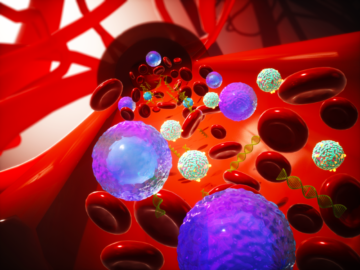From Nature:
 “We’ve known for many years that there is tumour-related material in the blood stream,” says Minetta C. Liu. “We just didn’t have the technologies to detect it with enough sensitivity for it to be meaningful.”
“We’ve known for many years that there is tumour-related material in the blood stream,” says Minetta C. Liu. “We just didn’t have the technologies to detect it with enough sensitivity for it to be meaningful.”
Liu, a medical oncologist and cancer investigator at the Mayo Clinic in Rochester, Minnesota, is one of a growing number of researchers advancing liquid biopsies as tools to understand cancer biology. The analyses of biomarkers in body fluids offers a minimally invasive and easily repeatable way to detect cancer-associated changes in the genome, epigenome, transcriptome and proteome. The wealth of information that can be obtained from material in blood and urine is opening new avenues for both research and disease monitoring.
In recent years, investigators have greatly improved the detection of many cancer biomarkers in liquid biopsies. Tests based on these biomarkers could, one day, do more than simply identify the presence of a tumour. They could help identify its location, stage, progression, and response to therapies, representing a paradigm shift in cancer diagnosis and management.
In research, the saying goes, extraordinary claims require extraordinary evidence. Where are those working on liquid biopsies placing their focus?
More here.
